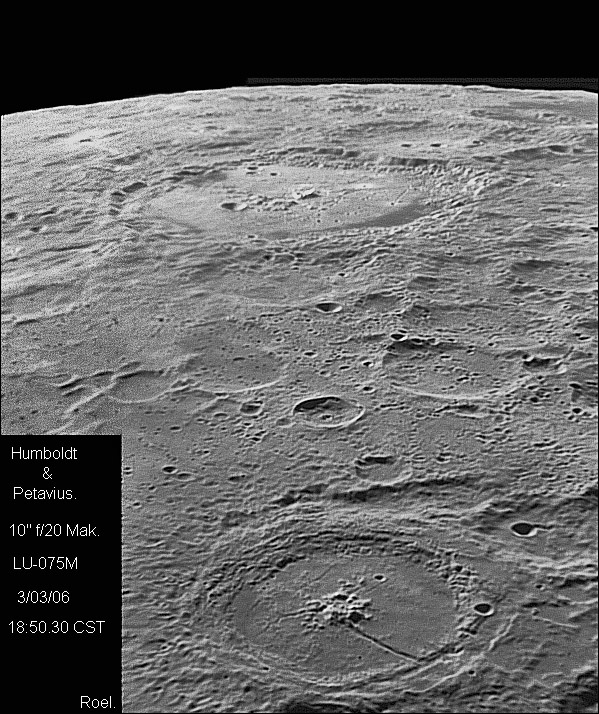
image by Eric Roel
I am busy writing final reports to NASA - on benchmarking educational technologies and learning and videogames - and must replay another LPOD hit - this classic is from March 7, 2006. Re-enjoy!
Being only 5 degrees this side of the nominal east limb, the 160 km wide crater Humboldt is rarely seen as well as in this wonderful mosaic by Eric Roel. As we saw in an earlier LPOD, Humboldt is a magnificent floor-fractured crater with rilles and dark halo deposits erupted from small volcanic vents. Just behind Humboldt is Barnard – you can recognize it from the two small craters near its center. In the foreground is another, better known floor-fractured crater, Petavius, with its rilles – big and small – and dark deposits. Petavius is a minor version of Humboldt. As I have said before, I wish the Moon weren’t locked in synchronous rotation with the Earth – then we could see all its sides, including the fascinating Humboldt, face on!
Technical Details:
March 3, 2006. 10″ f/20 TEC Maksutov + LU-075M camera, 100 frames from 3000.
Related Links:
Rükl charts 59, 60 & IV
Yesterday's LPOD: Smart-1 Crater not Observed
Tomorrow's LPOD: Fascinating Fototrickery
COMMENTS?
Register, Log in, and join in the comments.



